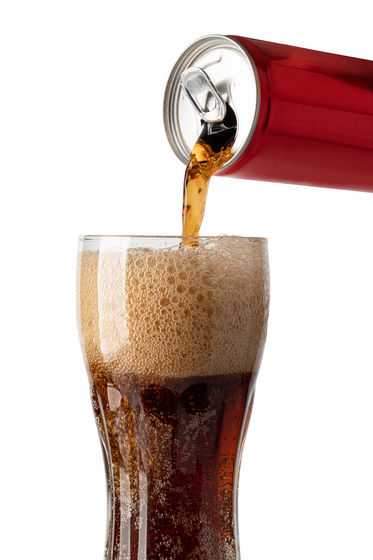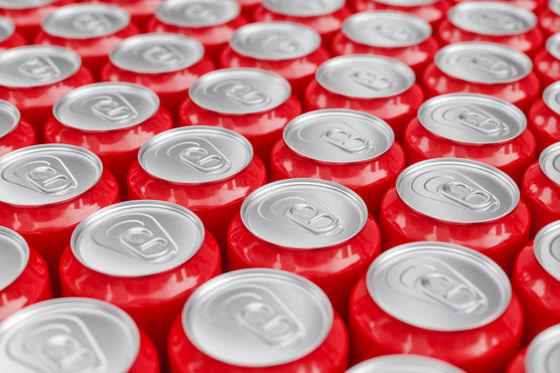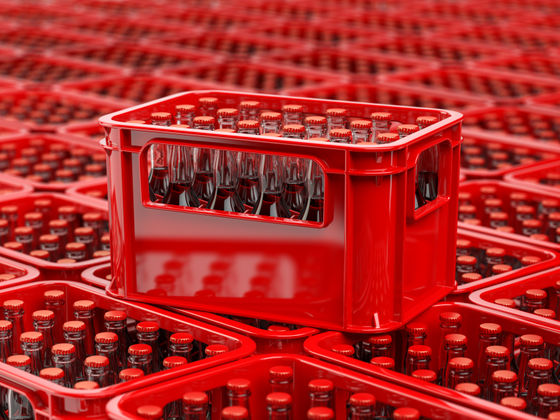Does Diet Coke Boost Your Brain?

The result of examining the theory that 'the reason why first-class people love diet cola is that the artificial sweetener contained in diet cola is metabolized to amino acids and it improves cognitive function' , Published by DYNOMIGHT, a site that summarizes food and health.
Diet Coke probably isn't a cognitive performance enhancer
The origin of this verification was about the news that 'successful rich people like diet cola', Twitter users said, '12 ounces of diet cola contains 100 mg of phenylalanine , which is in the brain. Because it is an indirect precursor of dopamine and noradrenaline . '
Ok I'm like 50% sure I solved @tylercowen's and @danielgross's “why do top achievers all drink Diet Coke?” Thing. 12oz Diet Coke contains 100mg phenylalanine, which is an indirect precursor to dopamine and norepinephrine in the brain. https://t.co/HlNA2ztZkb .
— Aaron Bergman ???? (@ AaronBergman18) May 19, 2022
According to DYNOMIGHT, the purpose of this discourse is that 'when aspartame , which is a sweetener for diet cola, is metabolized, it is metabolized to phenylalanine, methanol, and aspartic acid, which become substances in the brain such as dopamine.'
However, DYNOMIGHT points out that there are two problems with this theory. The first problem is that phenylalanine is abundant in all foods such as eggs, chicken, milk and soybeans.
For example, one diet cola uses 184 mg of aspartame, which is thought to be metabolized to about 103 mg of phenylalanine, but one potato has 170 mg of phenylalanine, one egg has 340 mg, and milk. About 253 ml per cup contains 430 mg, and 400 g of tofu contains about 3300 mg.
From this, DYNOMIGHT said, 'If phenylalanine is a stimulant, wouldn't a diet containing eggs, milk, and soybeans be a more optimized'god of productivity'than diet cola?' I'm pointing out.

However, there is a re-argument that this counterargument says, 'While foods ingest many amino acids at the same time, aspartame can ingest phenylalanine alone, so there may be a big difference in physiological effects.' We also know that phenylalanine and
But DYNOMIGHT says, 'Remember, phenylalanine and tyrosine are just two of the 20 amino acids that make up a protein. I don't think this has a powerful effect. Just because there is a pathway for phenylalanine and tyrosine to become dopamine does not mean that a healthy person's high intake does not mean that there is more dopamine in the brain. ' This is the second problem.
In order to verify the second problem, DYNOMIGHT searched the literature that actually investigated the effects of aspartame on the brain, and found the following six papers.
The first is anexperiment in which a large amount of aspartame was given to rats. In this experiment, rats were given aspartame at a concentration of 200 mg / kg body weight, and the brain was dissected. As a result, the concentrations of phenylalanine and tyrosine increased. However, the essential effect on dopamine was not constant, with dopamine increasing by 6.1% and decreasing by 1.1%. In addition, if a person weighing 70 kg tries to ingest 200 mg per 1 kg of body weight, he / she must drink 76.1 diet colas, and 12.3 bottles even if converted based on the difference in body surface area between rats and humans.

The second is a
The third is anexperiment in which the rat brain was directly exposed to phenylalanine and tyrosine to see if the amount of dopamine released changed. The experiment concluded that 'Phenylalanine may slightly increase or decrease dopamine release, but it is not a major change anyway.' About this, DYNOMIGHT said, 'If you read the paper carefully, there is a subtle difference between'a rat brain that has been sliced and soaked in buffer to control amino acid levels'and'a human millionaire who drinks diet cola.' You'll notice, 'he points out half-jokingly.
The fourth is anexperiment in which 200 mg to 1000 mg of phenylalanine was injected into the brain of anesthetized rats per kg of body weight. The results of this experiment showed that injecting 200 mg significantly increased dopamine levels, while 1000 mg conversely decreased dopamine. 'To reproduce this experiment, we had to inject 135.5 diet colas into the brain, so it's completely incomparable,' said DYNOMIGHT.

The fifth is a study that examined the blood and urine of 83 children with attention deficit / hyperactivity disorder (ADHD) to see if there were any abnormalities in phenylalanine, tyrosine, or tryptophan. No abnormalities were found in this study.
The sixth is a study in which 30 adult Japanese men are given 3 g to 12 g of phenylalanine daily (29 to 116 diet colas) for 4 weeks. The research team examined the subjects' blood amino acids and proteins in detail, but found no significant findings except for a slight increase in chloride and tyrosine. Studies were also conducted on sleep quality and mental fatigue, but they did not seem to have a significant effect.
From these research results, DYNOMIGHT said, 'When I first started to investigate, I thought that it was a theory that could be easily broken by light examination, but it was not. However, most of the evidence goes against this theory. I'm sure there is. ' By the time DYNOMIGHT wrote an article about this theory, five diet colas were consumed.
Related Posts:







